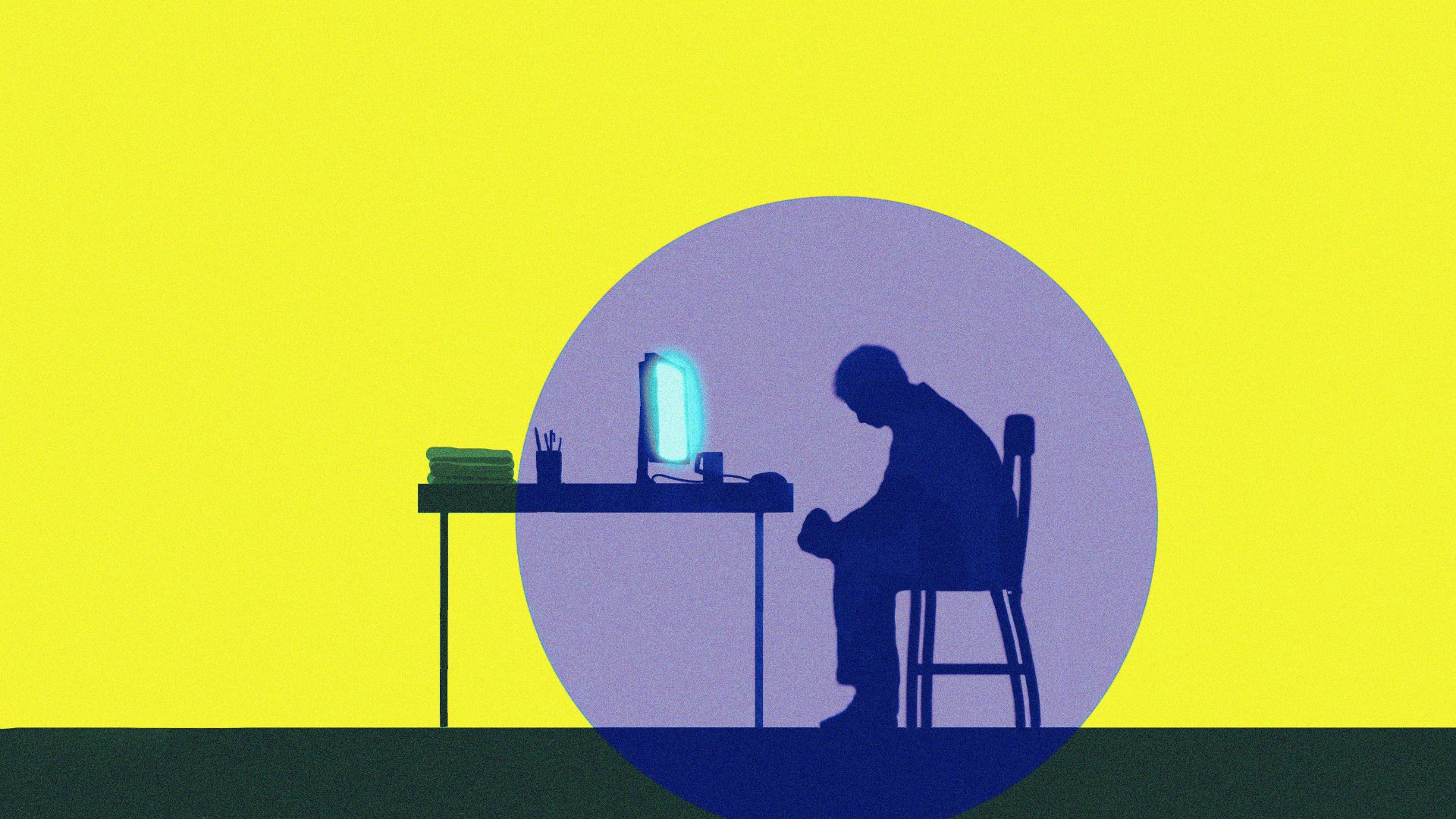Ah, the youths. The youths! What are they doing right? What aren’t they doing wrong? Around five minutes ago, as far as I can remember, we millennials were the ones being chastised by the media, day in, day out. We killed mayonnaise and we killed diamonds; we killed the lunch break and we killed department stores. It’s honestly amazing to think that the world still looks broadly the same today, given how hard we worked to destroy everything.
We are, however, old news now. We have kids and mortgages, and those of us who have neither can still buy wine without having to even consider getting our ID out first. We’re yesterday’s kids, and my hangovers won’t let me forget it. The new wave of unruly, useless children is Gen Z – the people born, roughly, between 1996 and 2012.
Some of them have now been in full-time work for over a decade; others are just about becoming teenagers. Still, they apparently have one thing in common: they just can’t hack it. “It”, in this context, is grown-up life. It’s empathy, time management, picking up the phone, being able to be both pleasant and competent during work meetings, all that jazz.
These “digital natives”, as we’re calling them, simply aren’t cut out for anything that doesn’t involve sitting in a corner, glued to their phone, endlessly scrolling on TikTok. Well, I exaggerate, but only slightly. Earlier this week, Greater Manchester launched Skills 4 Living, an initiative backed by Unesco-partner non-profit Higher Health, and aiming to reach 10,000 young people in the city region by September.
The programme, which has teamed up with, among others, the University of Manchester, the University of Salford and Manchester Metropolitan University, will teach them “soft skills” and “everyday but essential” tools. They aren’t the only ones seeking to address those issues. Last month, accountancy firm Forvis Mazars launched a course for Gen Zers, hoping to teach them how to, effectively, behave in an office job.
Now, if this were the Daily Telegraph, I should be taking a sharp turn and spending the rest of this column berating those unruly, unsightly, feral youths. How hard can it be to pick up a phone and talk to someone? Do you really need a course to learn how to chat to your colleagues around a desk? Hell, how can any semi-cognisant 25-year-old not manage the ancient and noble art of “being broadly on time for work every morning”?
If I’m honest, some part of me does want to ask those questions. I graduated at 21, not too long ago, and I learnt how to do those things reasonably seamlessly. I really wasn’t a well-polished young woman then, and it’s fair to say that newsrooms aren’t the most welcoming of environments. If I made it then surely, surely, they can too.
This would be an easy piece to write, but I fear it would ultimately be quite unsatisfactory. We can whine and complain about Gen Z all we want, but everyone’s a product of their environment. If we want to understand why so many kids are finding it so hard to become adults and, more importantly, ensure that future generations don’t suffer the same fate, we ought to be asking ourselves what went wrong.
Of course, some answers will be both unavoidable and (hopefully) unreplicable, like the Covid lockdowns, but that’s not the whole answer. Similarly, it is true that the generation below mine was the first to truly grow up in a fully online world, but that doesn’t mean we should shrug and accept that as a fact of life. If smartphones and social media cripple young people’s ability to engage with the world, both schooling and parenting should change and evolve to adapt to circumstances.
It also seems worth asking whether older and more senior employees clamouring to work from home may partially be to blame. Offices are meant to be the place where graduates learn all those skills they will use for the rest of their careers. What happens if all the people who would have once taught them, either actively or merely by being there and doing the work, now insist on living it up in their spare room?
It takes a village to raise a child, and a society to turn those children into adults. We may not like to admit it, but the shortcomings of this new generation are merely our own.










